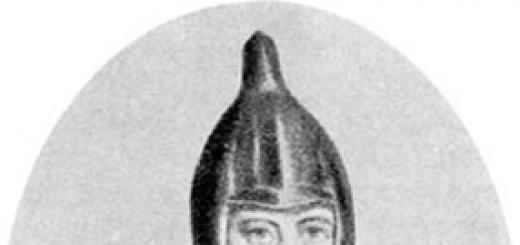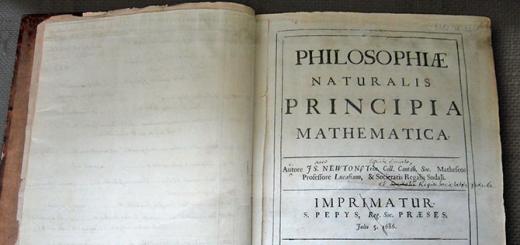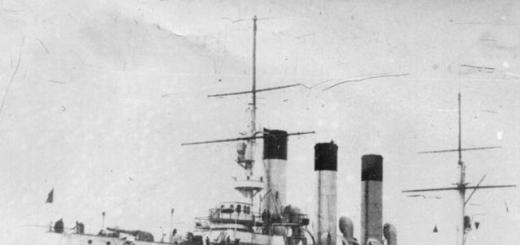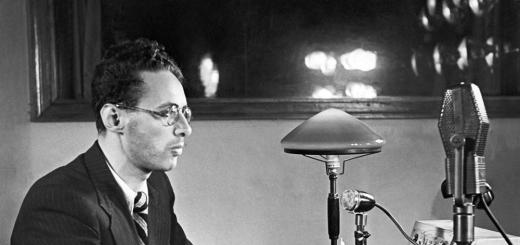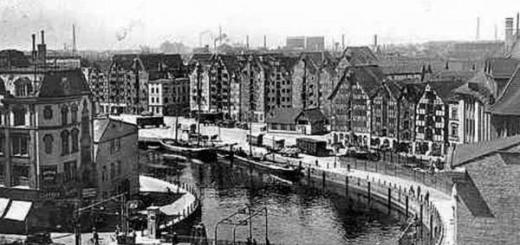In almost any film about the Great Patriotic War there are scenes where people listen to reports from the Soviet Information Bureau on the radio. Traditionally, these messages were read out by the announcer Yuri Borisovich Levitan, who has since become an integral part of our history. The fate of Yuri Levitan is amazing and at the same time simple, like many people of his era, who achieved popular respect and love through talent and hard work.
Yuri was born on October 2, 1914 in Vladimir, where his father worked as a tailor in a small artel. Since childhood, the boy had a strong and beautiful voice. At school, he constantly participated in art circles, played in amateur performances and even tried to sing. In 1931, after graduating from the 9th grade with a referral from school, Yuri went to Moscow to take exams at the State Film Institute. For the institute, he was young, but did not want to return to Vladimir.
The young man was lucky, an advertisement for a competitive recruitment of announcers for the radio caught his eye. Yuri decided to take a chance. Surprisingly, the clumsy teenager with a sideways accent was accepted as a trainee. But the number of those wishing to try their hand at the radio numbered several hundred, so the commission, which, by the way, included the famous Moscow Art Theater student Vasily Kachalov, had to weed out the contestants, as they say, in batches. Apparently, the members of the commission liked Levitan's beautiful and strong voice, and diction is a thing to come.
It is no secret that the trainee is not so much studying as doing small assignments, often not related to the future profession. And Yuri had to go through this, but he corrected his diction and pretty quickly. Soon they began to instruct him to read small messages and conduct concerts of gramophone recordings, but only at night, when there were few listeners, and the mistakes of the novice announcer were not so noticeable. By the way, at first he often encountered mistakes and reservations.
Perhaps he would have remained on the sidelines for a long time, but fate prepared another surprise for him. As usual, at night, Yuri read an article from Pravda on the radio. Usual routine work. But the young announcer was heard by Stalin, who traditionally worked at night. The leader liked Levitan's voice. There followed a call to the Radio Committee of the USSR and an instruction to instruct the announcer, who had just read an article from Pravda, to read a report on the radio that would be heard at the opening 17th Party Congress. Surprisingly, the five-hour report was read out by Levitan without a single mistake or reservation. Organizational conclusions immediately followed - nineteen-year-old Yuri Levitan became the main announcer of Soviet radio.
It would seem that now you can rest on your laurels, but Yuri continued to work hard, improved his diction, worked out for a long time before the air each text that was to be read. Soon his voice became recognizable and loved by the whole country.
With the beginning of the Great Patriotic War, it was Levitan who read out on the radio a message about the attack of fascist Germany on the USSR, and then read the reports of the Soviet Information Bureau for all four long war years.
Even at the beginning of the war, the fascist propaganda minister Goebbels had the idea that it was Levitan who should read out on the radio a message about victory in the war with the Soviet Union. Since the offensive in the first days of the war developed rapidly, Goebbels hoped that this would happen soon. There was an order to the leadership of the SS to organize the capture of the announcer, for whose head 250 thousand marks were promised - an enormous amount at that time. The war soon took on a protracted character, and the imminent victory had to be forgotten, but the "prize" for Levitan was not canceled, only now the announcer was not to be captured, but killed. There is evidence that Hitler considered Levitan the enemy of the Reich No. 1 and insisted on his speedy destruction. But all attempts to fulfill the Fuhrer's order - the involvement of agents, the bombing of the Radio Committee - were unsuccessful. Then the Nazis were not up to Levitan, the war rapidly rolled to the west. And in May 1945, red banners of victory rose over the defeated Reichstag.
Naturally, the message about the victory was to be read to Levitan. Here is how he himself recalled this exciting event:
“On May 9, 1945, I had the good fortune to read the act of unconditional surrender of Germany. In the evening, Alexei Aleksandrovich Puzin, Chairman of the Radio Committee, and I were summoned to the Kremlin and handed over the text of the Order of the Supreme Commander-in-Chief on Victory over Nazi Germany. It was supposed to be read in 35 minutes.
The radio studio from which such broadcasts were broadcast was located not far from the Kremlin, behind the GUM building. To get there, one had to cross Red Square. But before us is a sea of people. With the help of the police and the soldiers, they took five meters with a fight, and then - well, nothing.
- Comrades, - I shout, - let us through, we are on business!
And they answer us: “What's the matter! Now on the radio Levitan will transmit the order for victory, there will be a salute. Stand like everyone else, listen and look!”
Wow advice ... But what to do? If we make our way further, we will get into such a dense environment that we will not get out. And then it dawned on us: the Kremlin also has a radio station, you need to read from there! We run back, explain the situation to the commandant, and he gives the command to the guards not to stop the two people running along the Kremlin corridors. Here is the radio station. We tear off the wax seals from the package, reveal the text. It's 21 o'clock on the clock. 55 minutes. Moscow is speaking. Fascist Germany has been defeated…”.
After the war, Levitan's voice began to sound much less frequent, it was believed that it was politically wrong to instruct him to read out ordinary reports and news, since people associate his voice with some important events. But when the first Soviet satellite rushed into space, and then the ship with Yuri Gagarin on board, Levitan informed the world about this, as well as about many other landmark events of the Soviet era.
A small load on the radio did not mean that Yuri Levitan was messing around. He did a colossal job of rewriting all the messages of the Soviet Information Bureau (during the war, recording was practically not carried out, the announcer read the text live). Leading directors sought to invite Levitan to read behind-the-scenes texts for feature films or voice newsreels. With pleasure he accepted the legendary announcer and invitations to speak to veterans, students, in labor collectives. There was also an opportunity to look back on the past. It turned out that the announcer spent almost 60 thousand programs on the radio. Yuri Levitan was the first Soviet announcer to be awarded the title of People's Artist of the USSR.
When mass television began, people were able not only to hear, but also to see their favorite announcer, who began to participate in the recording of television programs. The last TV show, in which Yuri Levitan participated, was recorded in the summer of 1983. It was the next issue of the program "Do you remember, comrade?".
In early August 1983, when the 40th anniversary of the Battle of Kursk was celebrated, Levitan went at the invitation of veterans to the places of past battles. On August 4, 1983, on the field near Prokhorovka, Yuri Borisovich Levitan's heart could not stand it. The doctors were powerless. The legendary announcer was buried in Moscow at the Novodevichy cemetery. But the voice of Yuri Levitan continues to live, becoming for millions of people a symbol of an entire era.
Looking at the photograph of Yuri Levitan, you will never think that this thin young man is the owner of such a strong, deep, penetrating voice, from which goosebumps run through the body. Thanks to his talent, the young announcer got on the radio, where he was immediately entrusted with reading small messages during night broadcasts.
One of the messages was heard by Stalin, and after that, Levitan's life changed. He was assigned to read a report for the Party Congress, which was followed by an appointment as the country's chief announcer. At that time, Levitan was only 19 years old, but he was already trusted to read out the most important documents. The famous phrase “Attention! Moscow is speaking!”, uttered by Levitan, forced the entire Soviet Union to calm down and listen to the text of the message. The announcer's voice was special, everyone knew him. Despite the fact that the USSR collapsed more than twenty-five years ago, Levitan's voice is known even now.
Throughout the Great Patriotic War, starting with the report of the German attack on the Soviet Union on June 22, 1941, Levitan read out all the reports from the front, informing the Soviet people about what was happening on the battlefields. It was his voice that became a powerful motivator for the soldiers of the Red Army, instilling in them faith and the desire for victory.
When planning an attack on the USSR, Hitler expected a quick victory. In the very first days of the war, Goebbels approached Hitler with the proposal that the message about the victory of Germany should certainly be read out by Levitan. It was immediately decided to steal the announcer. However, all hopes of the Nazis for a quick victory melted away. The Red Army put up a firm rebuff. Levitan's voice sounded from all the radio horns of the country, reporting on the actions of the Red Army troops on the war fronts, convincing Hitler of the amazing power of the influence of the announcer's voice on people. Some time later, Hitler gave the order to destroy it. Confirmation that the Fuhrer regarded Levitan as a personal enemy can be found even in archival documents. The life of the great Soviet announcer was estimated at between 250 and 100,000 marks. In addition to assigning a reward for the destruction of the announcer, the Germans launched a number of sabotage plans for the same purpose.
However, in the Soviet Union, the power of Levitan's voice was also appreciated, and security was assigned to him, following the announcer around the clock.
Hitler never managed to get rid of the information weapons of the USSR. And in 1945, Levitan already announced the Victory over Germany.
After 1945, Yuri began to appear less and less on the air. Considering that the voice of the announcer would be associated with the events of the war, the country's leadership decided to limit his appearance on the radio. Occasionally he could be seen on TV programs, but for the most part he was busy working with youth.
This year our country celebrated the 67th anniversary of the Victory in the Great Patriotic War. But until now, new unexplored pages of the past, stories and legends about the exploits of soldiers, officers and commanders, military journalists, and the media are emerging for our descendants.
They say that Adolf Hitler during the war years declared the number one enemy of a man who did not command either the front, or the army, or the regiment, even the company. He did not serve in the army, did not destroy a single fascist. Who is this mysterious person?
Hitler declared the All-Union Radio announcer Yuri Levitan enemy number one. The information war was very important.
"Attention! Moscow speaking! Citizens of the Soviet Union! Today at 4 o'clock in the morning, without presenting any claims against the Soviet Union, without declaring war, German troops attacked our country. Levitan's voice with these words bypassed the multi-million dollar feature and documentary films.
Already on June 24, 1941, by the Decree of the Council of People's Commissars and the Central Committee of the All-Union Communist Party of Bolsheviks, the Soviet Information Bureau was created, which was called upon to cover international events on the fronts and the life of the country in the press and on the radio.
Information about the events at the front was covered by Yuri Levitan.
Yuri Borisovich Levitan was born on September 19, 1914 in the village of Bessonovka, Belgorod Region. From the age of 17 he worked on the Moscow radio. For more than 50 years, the announcer of the All-Union Radio broadcast the most important information messages. He had government awards.
At the age of 12, Levitan had a bass that adults were surprised at. In the courtyard he was given a nickname - "Yurka - a pipe."
They say that mothers from the windows asked him to call the children who were on a spree. And his voice was heard for several blocks.
People believed Levitan's bass, the information transmitted by the Soviet Information Bureau, from the very first days of the war, that the enemy was defeated near Moscow, Stalingrad, Kursk, etc.
In Berlin, they quickly realized that the radio is the same terrible information weapon as the combat Katyushas. Adolf Hitler did not know Russian, but when he heard Levitan's voice, he realized what a terrible force a person who owns such a voice represents, and ordered: "Destroy!".
The announcer was officially recognized as enemy number one of the Nazi Reich. A reward of 250,000 marks was placed on Levitan's head.
In early July, a sabotage group was thrown into the Soviet rear with the aim of getting into Moscow, infiltrating the premises of the Moscow radio and destroying the radio announcer Levitan.
The fighters of the Zagorsk fighter battalion and a detachment of the people's militia intercepted and neutralized the sabotage group.
Understood the danger of Soviet radio and Hitler's "propagandist" Goebbels. A plan was drawn up to destroy the Moscow radio. The first flight to Moscow took place a month after the start of the war - on July 22, 1941. Hitler's aces had bombs from 100 to 500 kg on board. On the Moscow map, the objects to be destroyed in the first place were identified: the Kremlin, the mausoleum, the Bolshoi Theater, power plants and the radio committee.
A German pilot dropped a 200-kilogram land mine on the building from where the “main mouthpiece of Moscow” was broadcasting. But it didn't explode. After the work of the sappers, an inscription in German was found on the body of the bomb, made by the anti-fascists who made it: "We help in any way we can."
This bomb was intended specifically for Yuri Levitan.
The hunt began for Levitan. Already in August 1941, the announcer was evacuated to Sverdlovsk. There was the most powerful radio station. From there, reports of the Sovinformburo were transmitted to the entire Soviet Union.
Hitler did not know where Yuri Levitan was. He gave the order to the secret services to find and kidnap enemy number 1.
The kidnapping did not take place. Levitan was guarded daily by NKVD officers.
In March 1943, Levitan was secretly transferred to Kuibyshev.
And he read the order about the victory over Nazi Germany already from Moscow.
Yuri Borisovich Levitan was not only Hitler's personal enemy number one, but also the voice of Victory in the Great Patriotic War, the victory of our first cosmonauts, Komsomol construction projects, etc.
Based on the materials of the Great Soviet Encyclopedia and the magazine "Secrets of the XX century" prepared
About who had to resist the Soviet front-line propagandists, our conversation with a researcher at the Institute of World History of the Russian Academy of Sciences Dmitry Surzhik.

Dmitry Surzhik: By the summer of 1941, there were 19 propaganda companies in the German armed forces (12 in the ground forces, 4 in the Luftwaffe and 3 in the Kriegsmarine), which included writers, artists, photographers, announcers, projectionists. In addition, a special propaganda battalion was additionally created in each of the Wehrmacht army groups ("North", "Center", "South"). The total number of German army propagandists on the Eastern Front was approaching 15,000 by 1943. By 1941, the psychological operations of the Wehrmacht had 6 long-wave and 10 medium-wave light-weight motorized stations with a capacity of 20 kilowatts each. It took only two hours to assemble and dismantle such a station. Despite the fact that during the retreat of the Red Army there was a clear directive to destroy radio stations in the first place, the Wehrmacht managed to capture the radio centers in Riga, Vilnius, Chisinau, Minsk, Lvov and Kyiv without serious damage (with the exception of Kyiv) and soon put them into operation. Broadcasting was carried out in Russian, Belarusian, Polish and even in Yiddish (on the ghetto in Minsk) and with the appropriate selection of thematic content. As even members of the partisan movement in Belarus admitted, in the detachments that had radio stations, "they listened to reports from the Soviet Information Bureau from Moscow, and music from Minsk."
The Wehrmacht managed to capture the radio centers in Riga, Vilnius, Chisinau, Minsk, Lvov and Kyiv
What "were filled with programs"?
Dmitry Surzhik: There were regional specifics. For example, within the framework of the Reichskommisariat "Ukraine" there were several regional broadcasting centers (Lvov, Kyiv, Kharkov, Crimea). The Lviv center was characterized by the maximum "Ukrainization" of broadcasting - not only the language, but also the ideological coloring. Here for a long time there was a noticeable influence of Ukrainian organizations, especially the OUN-M, on the German propaganda authorities. The Kyiv radio center, on the contrary, was as neutral as possible in color and was in fact a mouthpiece for broadcasting instructions and statements from the German occupation authorities for the local population. The Kharkiv radio center, which was responsible mainly for the Eastern Ukrainian regions, was the most tendentious in terms of propaganda. A typical example of an information message from the Kharkov occupation radio is given by the Soviet writer Alexander Fadeev in the "Young Guard": "The Red Army is defeated. Moscow is taken. Stalin fled beyond the Urals. The front is held by the Mongols hired by the British."
Hitler declared Yuri Levitan a personal enemy. Did Stalin have enemies of this level?
Dmitry Surzhik: During the Second World War, the German radio station "Germany Speaks" broadcast from Bremen to Great Britain. The name of its main announcer has long been hidden under the pseudonym "Lord How-How". This name has become a collective name for a number of German propagandists, the most prominent of which was William Joyce. He was one of the leaders of the British Union of Fascists, and in the spring of 1940 fled to Germany. He knew the British mentality and the realities of life well (not to mention the English language - he spoke with features that betrayed him as a representative of the upper classes).
Nazi Germany failed to find a similar radio propagandist for the Soviet Union. Goebbels had his own official spokesman, Hans Fritsche, but he spoke exclusively to the German public. His manner of speaking in a tongue twister, completely false in content, differed from the booming and loud bass of Yuri Levitan, who only read out reports, although truthful, but prepared in advance for him. The Nazis could not oppose anything to Levitan's artistry, although they first tried to steal or destroy him, and then find a similar announcer.
The image of Hitler was specially created. For example, the architects, according to the idea of Goebbels, were engaged in the design of a cozy rural house of the Fuhrer in the Alps. In 1938, journalists were invited there to write about the "hospitable kind host", who already had Kristallnacht and the Night of Long Knives on his account. Our propagandists were engaged in such projects?
Dmitry Surzhik: Joseph Stalin corresponded to the then idea of a "leader". He mastered the art of creating and managing his own image. He knew how to charm far from simpletons, but - neither more nor less - the Western literary intelligentsia (Henri Barbusse, Lion Feuchtwanger). Used the image of "father". Visiting factories, institutions, construction sites, he could show sincere interest in what was shown to him, which naturally supported the "fatherly" stereotype. A father who is interested in the affairs of a child is loved with all his heart.
Are there any propaganda fakes of the Second World War in the modern mind?
Dmitry Surzhik: Weight. They arose during the war and are still exaggerated. For example, when analyzing the Soviet foreign policy of the late 1930s in relation to Romania, Finland and the Baltic states, some modern historians write about the "imperial aggression" of the Soviet Union. But they "turn a blind eye" to the status of Moldova, which has been under Romanian occupation since 1918. To Finland's persistent attempts (since the late 1930s) to restrict the movement of the Soviet Baltic Fleet in the Gulf of Finland and the legal activities of Nazi residencies in the country ... To the attempts of the Baltic republics in 1940 to achieve a protectorate from Nazi Germany ... The purpose of propaganda is to create an image of an aggressive USSR and glorify the nationalists supervised by the Nazi secret services, and as a result, equalize the Stalinist and Nazi regimes and demand material compensation for the "Soviet occupation."
Happy holiday - Victory Day!
Yuri Borisovich Levitan.
The current young generation, probably, does not know this legendary personality - the announcer of the All-Union Radio and Television, whose voice, by the strength of the influence, the front-line soldiers compared with a division.
It was for his head that Hitler promised 100 thousand, and according to other sources - 250 thousand marks. A huge sum for those times. Hitler declared him enemy No. 1 and ordered him to be hanged first when taking Moscow. Levitan was vigilantly guarded by NKVD agents in order to prevent an attempt on the "first voice of the country" by the German special services. His photo was not printed anywhere, all data about him was classified.
In March 1971, Levitan (I don’t remember on what occasion) arrived in the city of Grodno (Belarus), where at that time I was serving in the border detachment. Local authorities organized a meeting of Levitan with participants in the war, representatives of organizations and enterprises of the city in the Palace of Culture. The unit commander sent me to this meeting with an order not to return without Levitan. As a person responsible for cultural, educational and patriotic work among the border guards, I was instructed to organize a meeting between Yuri Borisovich and the personnel of the unit.
For about two hours, the crowded hall of the Palace of Culture, with bated breath, listened to Levitan's story, and he had something to tell.
Yuri Borisovich was born in 1914 on October 2 in a Jewish family. His father was a tailor and his mother was a housewife.
For his powerful voice, the guys gave him the nickname "pipe". Levitan recalled that when late in the evening it was necessary to collect the spree children home, the mothers asked Yura to call their children. And Yura's booming voice was heard all over the neighborhood: “Gri-sha! Vasya! Mi-sha! .. Home!
When he was 17 years old, he went to Moscow to study "as an artist." He was not mistaken for an artist for his ok speech. Frustrated, he accidentally saw an ad for a group of radio announcers. Despite the huge competition, he was accepted as a trainee on the condition that he would get rid of the Volga Dialect. Lessons in the technique of speech went to his advantage and soon he spoke without a sound.
It is not known how his fate would have developed if one night Stalin had not heard his voice on the radio - Levitan was reading some information from the Pravda newspaper. Stalin immediately demanded that this voice read his speech at the 17th Party Congress on the radio. Yuri Borisovich then read the text of Stalin's report without a single mistake. From that moment on, he became the main announcer of the Soviet Union. He was then only 19 years old.
“Our cause is right. The enemy will be defeated. Victory will be ours". The powerful voice of Levitan gave these words great power and instilled confidence in our victory during the war years.
After the performance at the Palace of Culture, I could not approach him - he was constantly surrounded by people. And then, finally, he and the woman from the regional party committee who accompanied him went into a separate office. I plucked up the courage to follow them in.
- You to whom? - the lady from the regional committee asked sternly. - Yuri Borisovich is tired and he needs to rest.
Here Yuri Borisovich stood up for me. He said that he respects people in green caps, cited the words of Zhukov, where the marshal said that he was always calm for those sectors of the front where the border guards fought, invited me to sit down. Thus the conversation began unnoticed.
I didn’t follow the commander’s order then - Levitan could not speak in our unit, because two hours later he left for Moscow and the tickets were already taken. But on the other hand, he left me his autograph on the book “In the battles for Belarus” as a keepsake.
During the war years, Levitan read reports from the fronts and orders of the Supreme Commander-in-Chief Stalin on the radio. Every inhabitant of the country knew his voice. It was he who was entrusted with announcing the capture of Berlin and the Victory.
Before reading the message about Victory, a curious incident occurred. Here is how Yuri Borisovich recalled this incident.
In the evening he was summoned to the Kremlin and handed over the order of the Supreme Commander on Victory. There were 35 minutes left before the broadcast. “The radio studio from where such broadcasts were made,” Levitan recalled, “was located not far from the Kremlin behind the GUM building. To get there, one had to cross Red Square. But before us is a sea of people. With the help of the police and soldiers, they took five meters with a fight, and then nothing. Comrades, - I shout, - let us through, we are on business. And they answer us: “What else are you doing! Now on the radio Levitan will transmit the order for victory, there will be a salute. Stand like everyone else, listen and look!”
Wow advice ... But what to do? And then it dawned on us: the Kremlin also has a radio station, you need to read from there! We run back, explain the situation to the commandant, and he gives the command to the guards not to stop the two people running along the Kremlin corridors. Here is the radio station. We tear off the wax seals from the package, reveal the text. It's 21 hours 55 minutes on the clock.
Exactly at 22:00 the whole country heard the good news.
"ATTENTION! MOSCOW SPEAKS! THE GREAT PATRIOTIC WAR WHICHED BY THE SOVIET PEOPLE AGAINST THE GERMAN-FASCIST INVADERS IS VICTORIOUSLY ENDED. FASCIST GERMANY COMPLETELY DESTROYED!"
“And so she came.
Unbelievably beautiful
unheard of happy
In fireworks and flowers,
Such as in dreams -
Victory!
This morning the songs sounded
Over the country, over thousands of villages.
This morning the voice of Levitan
He announced the victory to the world.
Yuri Levitan often met with war veterans. He died at the next meeting with veterans. He came to Prokhorovka Field for the celebration in honor of the 40th anniversary of the Battle of Prkhorovka. 40 years ago, in 1943, he read out the first order of the Supreme Commander-in-Chief in the history of the war about the victorious salute in honor of the liberation of the cities of Belgorod and Orel. And so he arrived in these places, arrived at the place of the feat, which he solemnly announced on the radio 40 years ago.
Unexpectedly, Levitan clutched at his heart ... They could not save him in the village hospital.
Yuri Levitan was buried at the Novodevichy Cemetery - among the marshals of the Great Victory.
The photo shows the autograph of Yuri Levitan.
Collage of Larisa Beschastnaya
